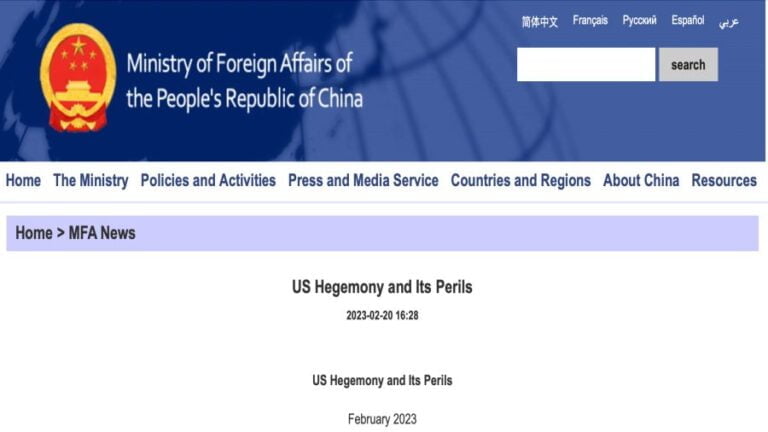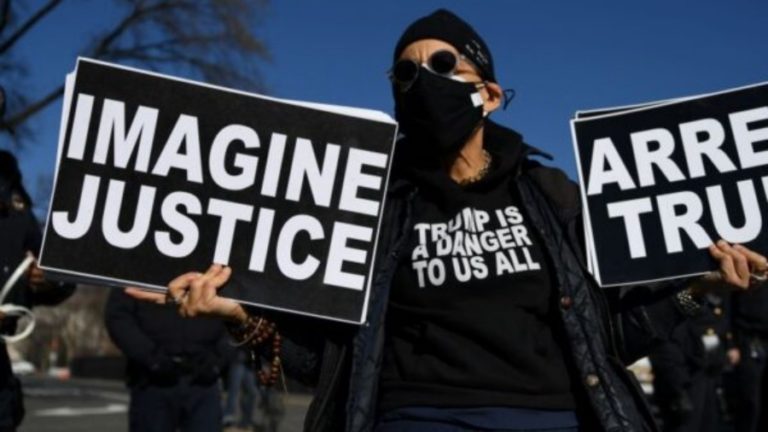One World Under Corona?
The American Pledge of Allegiance ends with the words: “One nation under God, indivisible, with liberty and justice for all.” Two and a half centuries after its drafting, few Americans realize that it is only by working with other countries that they can maintain that aspiration. After more than fifty thousand American deaths and three million victims worldwide, I’m hoping that MSNBC’s outstanding anchor, Ali Velshi, will suggest that when Covid crashes the economy, it’s time for the US to abandon its claim to hegemony and cooperate with other nations to defeat it.
With hundreds of thousands of deaths to date, Covid is challenging every country, regardless of its form of government. A small French plane company transports medical staff from one region to another; Germans produced tens of thousands of cotton testing swabs almost overnight. In contrast, the fact that US federal government must compete with those of the fifty states allows the Republican Senate leader to advise those in unsurmountable economic difficulty to simply declare bankruptcy.
In another handicap, the federal government cannot order private companies to produce diagnostic tests or other indispensable tools to control the pandemic: they will only do so only to the extent this benefits future bottom lines, which an epidemic quickly suppressed fails to do. Whatever the health risks to the population, federal authorities wave their mandatory — and highly bureaucratic — verification process for vaccinations and medications, while President Trump forces Congress to vote the lowest possible unemployment package for workers laid off by the pandemic. Meanwhile, European governments can increase already generous unemployment benefits. In what is perhaps the most shocking development, it is suggested that laid off American workers could sue their employers, while similarly, customers infected while shopping could sue business owners.
American food factories, especially those processing meat, have been forced to install separations between each worker, taking temperatures before allowing access to the facility, even though fever may not appear for several days while a person is becoming contagious. As governors and mayors consider re-opening economic activity and sending children back to school, they suddenly realize that it is impossible to carry out social distancing in the subways or busses that most Americans rely on, while the Mayor of Paris has employees handing out masks outside metro stations.
In a country where carefree can-do is the norm, Covid is experienced as a foreign occupation, while its effects on the developing world are ignored. Illustrating the Janus face of neo-liberalism that tolerates obscene wealth side by side with abject poverty, Henry Kissinger noted with satisfaction that Covid will lower southern populations, but that even if the ‘democratic nations’ cooperate, the world will never be the same again.
It does not occur to him that only a cooperative, holistic approach by the entire international community can prevent decades of progress from being lost. At the start of 2020, 135 million people in the developing world were facing acute food shortages, with the World Food Program expecting the pandemic to bring 265 million to the brink of starvation by year’s end. In Latin America progress in health care modernization still leaves a majority of citizens without access. As for Africa, its strong family networks will not suffice, any more than they did during the Ebola epidemic, to avoid a race between hunger and disease. Unrest was already widespread following decades of weak political leadership and corruption, and lack of health care facilities limit economic prospects.
While the West focuses on the effects of Covid on its own economy, the leaders of Russia and China remain steadfast in their commitment to the basic socialist principle of solidarity, sending planeloads of medical aide and medical personnel to countries in need. Their arrival in Italy, whose neighbors had turned their backs, provoke orchestrated cries of ‘The Russians are coming!’ while in fact governments are beginning to challenge their battlefield roles in Washington’s hegemonic plan to take down Russia and China, as suffers the consequences of its wars against the Third World.
Long forced by outdated treaties to bear the brunt of Washington’s plans to take down first Russia, then China, since 2015 Europe has been forced to deal with a massive arrival of young Middle Easterners and Africans eager to access Western life-styles. After seventy-five years of what has essentially been a US occupation, France’s President Emanuel Macron has dropped the pretense of an unbreakable NATO alliance, paving the way for former Italian Prime Minister Enrico Renzi to declare that Europe should cultivate good relationships with Russia, while, as recently pointed out in this journal ordinary Germans question the existence of US bases and weapons on their territory.
Where the classical tools of international relations have failed to liberate Europe from American domination, Covid 19 may succeed. As the stock market plunges and unemployment tends toward Great Depression levels, President Trump condones demonstrations against social distancing by gun-toting followers, and infection-tracing apps raise the specter of a surveillance state, the five major European leaders are formally organizing to defeat the Corona virus. Time will tell whether they honor the Enlightenment’s commitments, or whether they too leave the four fifths of humanity that lives in the southern hemispheres to survive as best it can.
By Deena Stryker
Source: New Eastern Outlook







